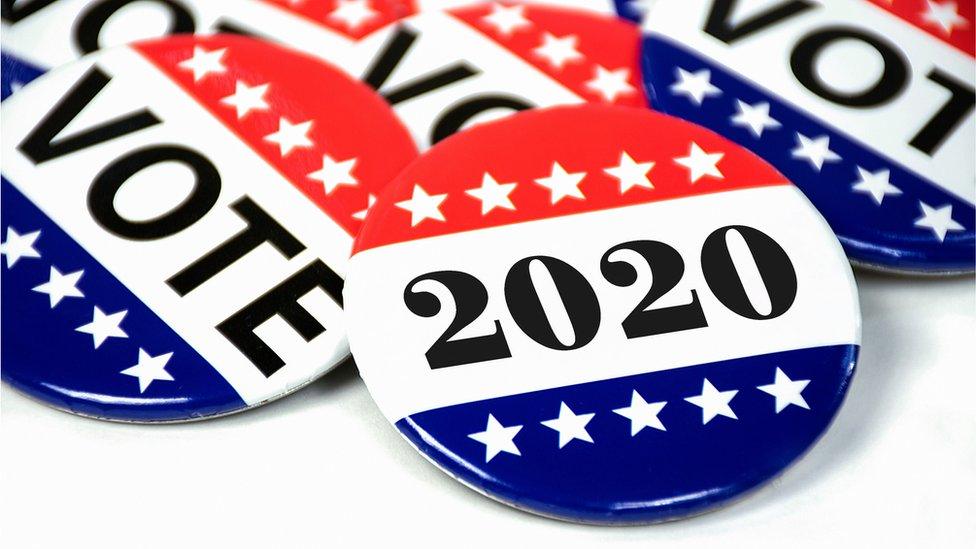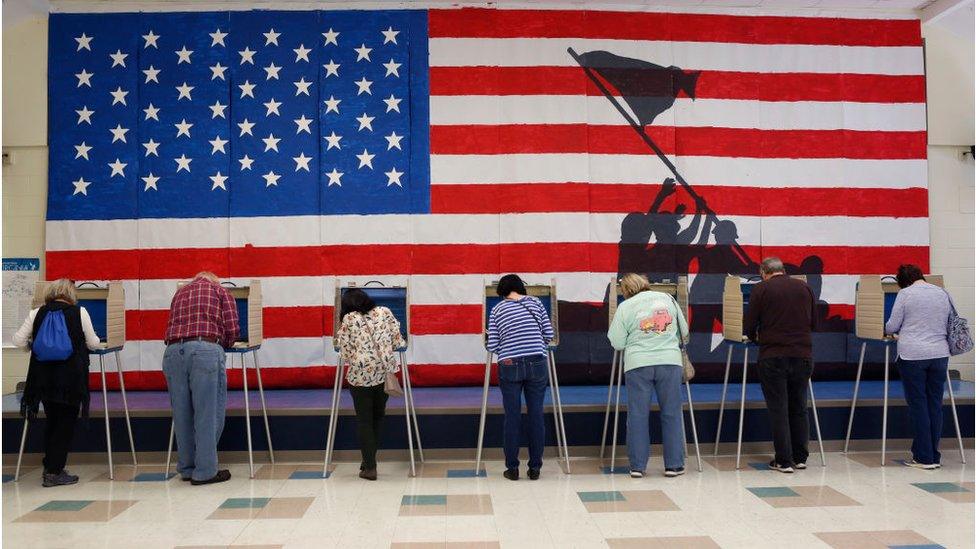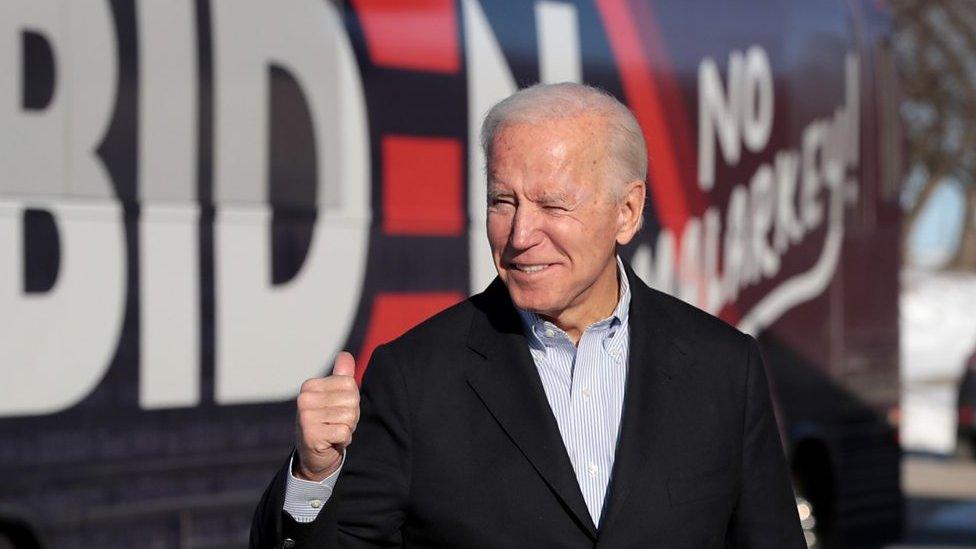Elizabeth Warren: Where did it go wrong for her?
- Published
Warren drops out: "Little girls will have to wait four more years for a woman president."
Now that she has dropped out, post-mortems on Elizabeth Warren's campaign - which was leading the polls in the autumn - have begun.
Many point to her shifting her support from an immediate push for universal government-run healthcare as president to a phased transition. It caused liberals to stick with Bernie Sanders and centrist to have their doubts about her - all on an issue that, unlike ethics and economic reform, was never her top priority.
Others suggest she was harmed by hesitant performances in the debates that mattered - before the Iowa and New Hampshire contests. Her strongest effort came with her vivisection of Michael Bloomberg in Las Vegas, which was buried by Sanders's win in the Nevada caucuses. While her showing may have given her a fund-raising boost, it was too late to help her at the ballot box there .
Then there's the issue of sexism. Four years after Democrats chose Hillary Clinton to be their nominee, voters may have been reluctant to opt for another woman atop the ticket. This hesitance was seldom explicit. Instead it displayed itself in concerns about "likability" or "electability", and what hypothetical swing-state voters might think of her.
It also sometimes reared its head in Warren's media coverage, where her healthcare backtracking received considerably more criticism than similar pirouettes and hedging by Pete Buttigieg and other male candidates.
The US will elect its first woman president someday, but it will not be in 2020.
Instead, the concern of the moment moves to who Warren might endorse for president - Sanders or Joe Biden - or if she will weigh in at all.
Given their ideological similarities, Sanders seems like the obvious choice - despite their personal conflicts in the past few months. A less likely move would be to back Biden, but there would be some value in it for her if she could leverage some concessions from his camp, such as the promise of being his treasury secretary with a free hand to run the department as she sees fit.
Warren may be fairly confident a Sanders administration would do the right thing, policy-wise. She may not be so sure about Biden, which is why elbowing her way into the a top admin post would be valuable.
Then there's the fact that, at least for now, Biden seems to be in a better position to get the nomination than Sanders, so aligning with the winning side always has its benefits.
Of course, you can't discount the absolute rage and sense of betrayal a Warren endorsement of Biden would provoke on the progressive left. Her social media accounts would disappear beneath an avalanche of snake emojis.
There's also a strategic downside. If she wanted to run as the progressive standard-bearer in 2024, crossing Sanders now would be deadly.
While her campaign didn't end close to the way she would have liked, Warren has some interesting choices to make in the days ahead.
- Published3 February 2020

- Published5 March 2020

- Published19 May 2020

- Published9 December 2019

- Published2 March 2020

- Published17 January 2020

- Published4 February 2020

